CAAT Grants
The grants program is a centerpiece of our work, providing initial funding for scientists to develop alternatives to the use of animals in biomedical research and product safety testing. To date, the center has funded over 300 grants (including renewals) for a total of more than $6 million.
The Johns Hopkins Center for Alternatives to Animal Testing (CAAT) is soliciting projects that focus on the implementation of the NAS Report: Toxicity Testing in the 21st Century: A Vision and a Strategy in the following areas:
- Proposals Relating to Toxicology: Maximum grant amount is $40,000. The objective should be to significantly reduce or replace laboratory animals. Examples of acceptable projects could include: providing mechanistic understanding of in vitro responses to toxicants in human cells, development of AOPs, or conducting systematic reviews. Consideration should be given to the translation of this new method to evaluate/predict health outcomes.
- Proposals relating to Refinement are awarded through a different funding mechanism: See Reduction and Refinement Award – funded separately.
Although relatively small individually, these grants offer critical seed money that allows researchers to demonstrate the value of a particular area of study so they can gain support from the NIH and other sources.
We have a stringent, peer-reviewed process for selecting the recipients of these grants. This process consists of sending each application to at least two to three experts in the field from academic, industrial, and government institutions. These reviewers evaluate the applications with regard to scientific merit, budget appropriateness, suitability to CAAT’s mission, and expertise of the investigators. They also assign a priority score based on the scoring system used by the NIH.
At the CAAT annual advisory board meeting, these applications are reviewed by board members. Board members constitute the voting contingent for the grant applications and assign priority scores in a secret ballot format based on a synopsis of the outside reviews and the board reviewers. The applications are then ranked in order of priority score, and those that receive fundable scores are awarded funds based on the availability of money for the fiscal year.
We continue to monitor the long-term progress of the Research Grant Program by requiring our grant recipients to submit copies of publications resulting from the work supported by CAAT grant funds. We maintain a list of publications and an archive of journal reprints.
Grants Program Coordinator: Fenna Sillé (fsille1@jhu.edu)
